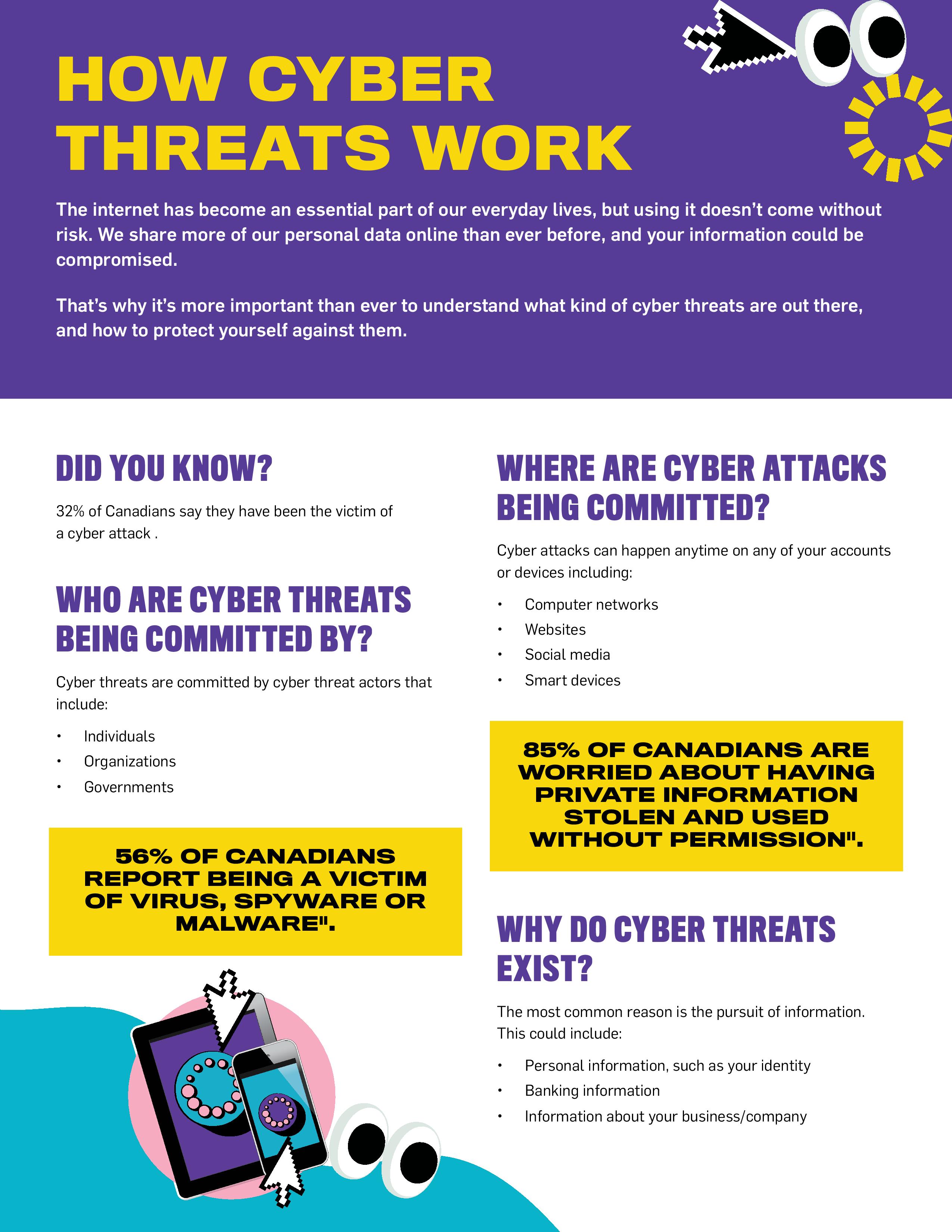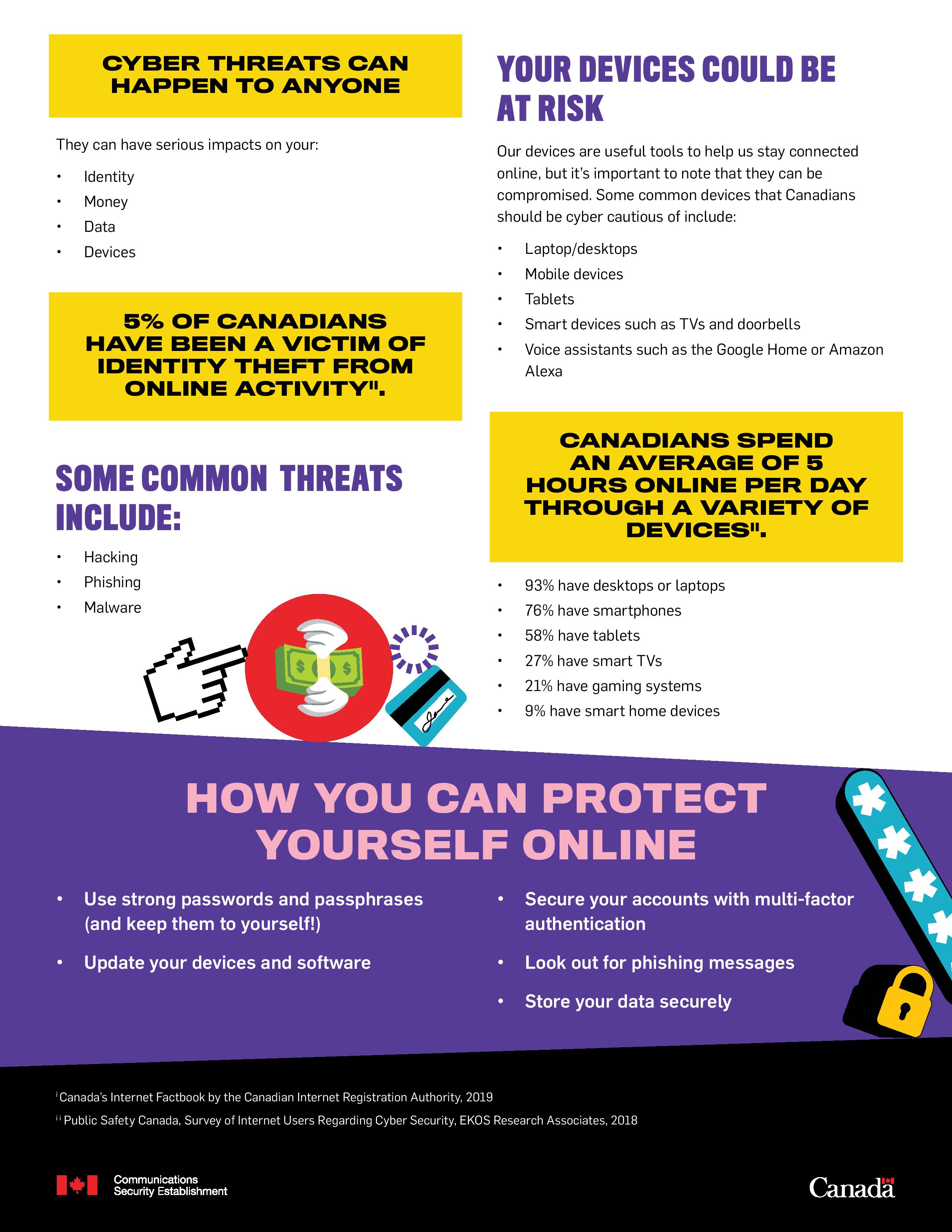

-
Transcript
How cyber threats work
The internet has become an essential part of our everyday lives, but using it doesn’t come without risk. We share more of our personal data online than ever before, and your information could be compromised.
That’s why it’s more important than ever to understand what kind of cyber threats are out there, and how to protect yourself against them.
Did you know?
32% of Canadians say they have been the victim of a cyber attacki.
Who are cyber threats being committed by?
Cyber threats are committed by cyber threat actors that include:
- Individuals
- Organizations
- Governments
And 56% of Canadians report being a victim of virus, spyware or malwareii.
Where are cyber attacks being committed?
Cyber attacks can happen anytime on any of your accounts or devices including:
- Computer networks
- Websites
- Social media
- Smart devices
85% of Canadians are worried about having private information stolen and used without permissionii.
Cyber threats can happen to anyone
They can have serious impacts on your:
- Identity
- Money
- Data
- Devices
5% of Canadians have been a victim of identity theft from online activityii.
Some common threats include:
- Hacking
- Phishing
- Malware
Your devices could be at risk
Our devices are useful tools to help us stay connected online, but it’s important to note that they can be compromised. Some common devices that Canadians should be cyber cautious of include:
- Laptop/desktops
- Mobile devices
- Tablets
- Smart devices such as TVs and doorbells
- Voice assistants such as the Google Home or Amazon Alexa
Why do cyber threats exist?
The most common reason is the pursuit of information. This could include:
- Personal information, such as your identity
- Banking information
- Information about your business/company
Canadians spend an average of 5 hours online per day through a variety of devicesii.
- 93% have desktops or laptops
- 76% have smartphones
- 58% have tablets
- 27% have smart TVs
- 21% have gaming systems
- 9% have smart home devices
How you can protect yourself online
- Use strong passwords and passphrases (and keep them to yourself!)
- Update your devices and software
- Secure your accounts with multi-factor authentication
- Look out for phishing messages
- Store your data securely
i Canada's Internet Factbook by the Canadian Internet Registration Authority, 2019
ii Public Safety Canada, Survey of Internet Users Regarding Cyber Security, EKOS Research Associates, 2018